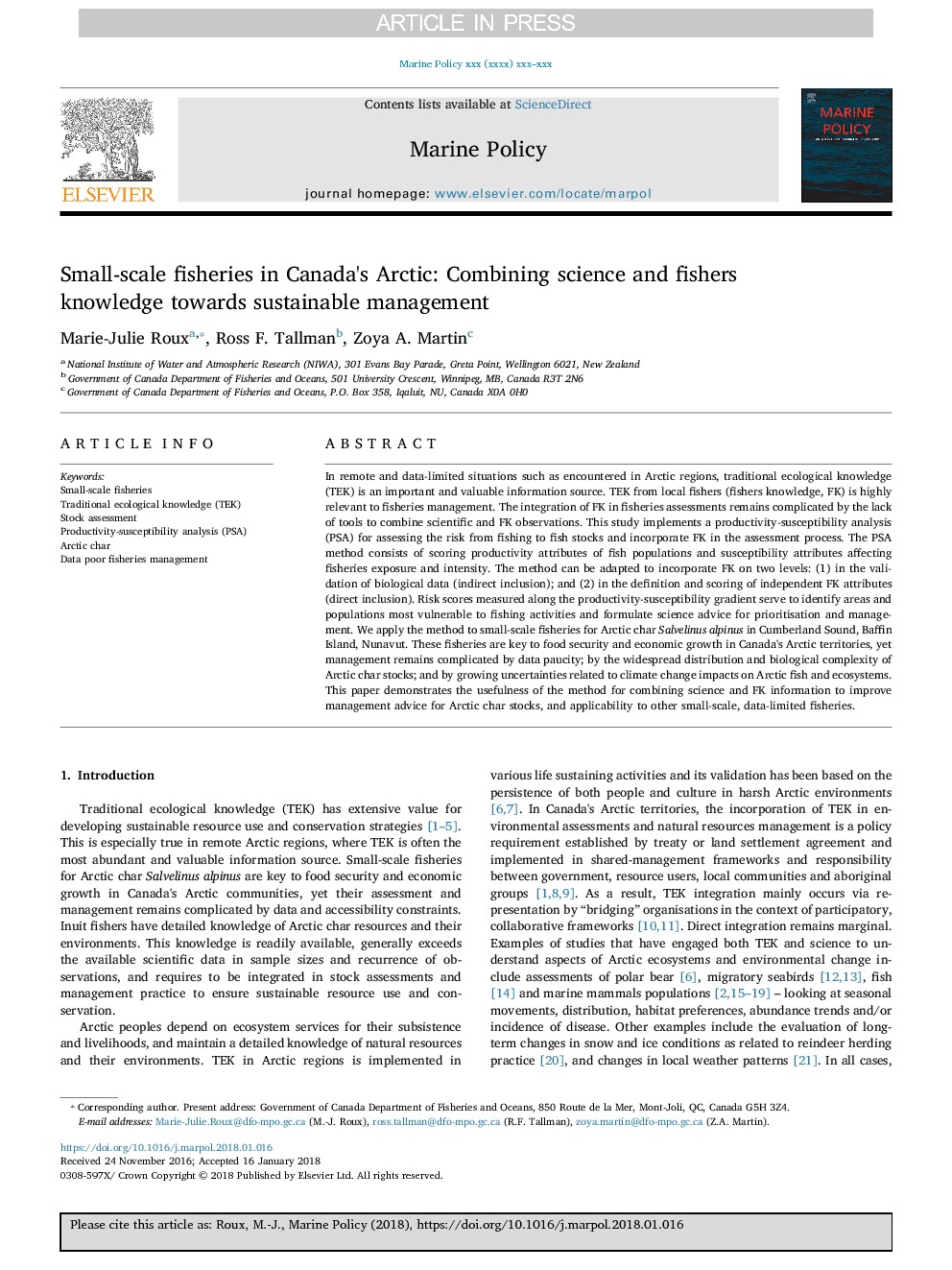ترجمه فارسی عنوان مقاله
ماهیگیری کوچک در قطب شمال کانادا: ترکیب علم و دانش ماهیگیران به سوی مدیریت پایدار
عنوان انگلیسی
Small-scale fisheries in Canada's Arctic: Combining science and fishers knowledge towards sustainable management
| کد مقاله | سال انتشار | تعداد صفحات مقاله انگلیسی |
|---|---|---|
| 82502 | 2018 | 10 صفحه PDF |
منبع

Publisher : Elsevier - Science Direct (الزویر - ساینس دایرکت)
Journal : Marine Policy, Available online 7 February 2018

